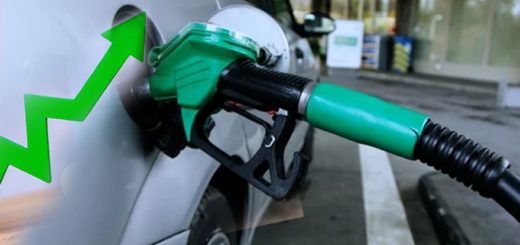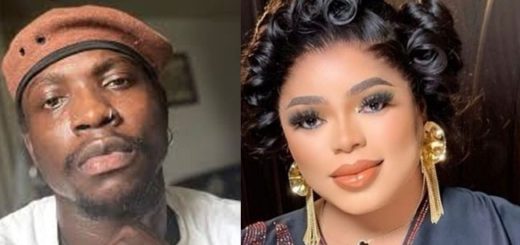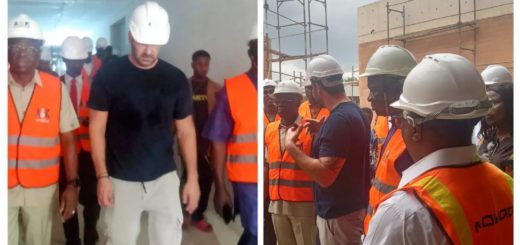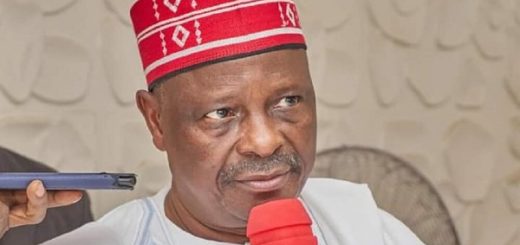How North-west may decide presidential candidate’s fate
The Independent National Election Commission (INEC) had declared that 93.5 million Nigerians would participate in the exercise with the North-west making up a chunk of this figure. In this report ABDULRAHMAN ZAKARIYAU writes on how North West may decide the fate of the Presidential candidates.
After a clean-up of voters registered by the Independent National Election Commission for the 2023 general elections the electoral umpire, deleted 2.7 million names over multiple registrations. Consequently, the number of registered voters was pecked to about 90.8 million Nigerians.
To ensure all Nigerians participated in the process, INEC commenced nationwide distribution of the Permanent Voter Cards (PVCs) on December 12, 2022, and the process is expected to end on January 22, 2023.
On February 25, 2023, eligible voters would decide who would become Nigeria’s next president.
While it is not known where the pendulum would swing, however, the winner who would get a four-year mandate has to tackle high unemployment figures, biting poverty, overwhelming insecurity, rising inflation, crude oil theft, dwindling revenues, high debt burden, industrial/trade crises among others.
As it stands now, without prejudice to the remaining 15 political parties and their respective presidential candidates, we have three leading candidates in this race, they are Asiwaju Bola Ahmed Tinubu of the All Progressive Congress (APC), Alhaji Atiku Abubakar of the Peoples Democratic Party (PDP) and Peter Obi of the Labour Party (LP).
Notably, they are from South-west, North-east, and South-east zones, respectively, however, political pundits believe the North-west would play a critical role in determining who succeeds President Muhammadu Buhari.
Registered voters, collected PVCs tally
Going by the available record of registered voters and PVC collection, Nigerians residing in North-west, comprising Kano, Kaduna, Katsina, Zamfara, Sokoto, and the state would play a significant role in shaping the result of the presidential election.
From the over 90 million registered voters the Northwest accounts for the highest number over 22 million voters, followed by the South-west, with about 18 million.
North-central comes third with 15 million voters, while South-south has about 15 million voters, followed by the North-east which has over 12 million voters, and the lowest is south-east with 11,498,277 voters.
Meanwhile, out of the newly registered voters, Kano after Lagos has the highest with over 6 million prospective voters.
Similarly, Kaduna, which was also number three in 2019 in terms of the number of registered voters, maintained its position in 2022 after the continuous voter registration (CVR) exercise.
According to INEC’s data, Kaduna state now has 4.4 million registered voters.
Also, Katsina state, North-west, had 3.2 million registered voters for the 2019 elections to emerge as one of the states with the highest number of voters in Nigeria. In the concluded CVR the state now has total registered voters of 3.57 million. Sokoto, Jigawa, and Zamfara cumulatively have over 9 million registered voters.
Going by Blueprint Weekend zonal analysis the North-west states are leading in the on-going PVC collection. This implies that, they would likely have highest number of PVCs collected compared to other zones.
What numbers mean for candidates
Ordinary, this election should be a contest between Southern candidates who would lobby and seek for votes from the North. However, the PDP had jettisoned its zoning principle, which would have handed its ticket to a southern aspirant its ticket.
The party reportedly is hoping that its candidate, Atiku, who is from the North would appeal to northern voters and offer the PDP a better chance defeating the candidate of the ruling APC.
Expectations is that Atiku, who from the North-east who gain support of his fellow northerners based on sentiment.
However, Tinubu believes his party, the APC, being in control of five out of the six states in the zone and also as the incumbent president’s zone he would get more votes than other presidential candidates.
On his part, the LP candidate is also appealing to the zone through his running mate, Datti Baba Ahmed, who hails from Kaduna state. He is also playing the insecurity and the APC Muslim-Muslim ticket cards against the ruling party’s candidate.
Voting history
Besides the appeal of these candidates and other relating factors, the voting pattern of the zone in previous elections also showed that they could determine results of the presidential election.
In 2015, most of the votes from the North-west states were for President Buhari, who defeated an incumbent, President Goodluck Jonathan of the PDP.
Also in 2019, the votes from the six North-west states were largely for President Buhari leading to his election for second tenure in office.
Who get their vote?
It is unclear who the states would vote in the forthcoming election given that President Buhari was no longer running. Some political analysts have argued that the outcome was unpredictable as electorate could go with any of the candidates.
However, there appears to be a consensus that factors like insecurity, region, religion, power of incumbency, among others could influence the choice of North-west in the poll.
For political analyst, Aminu Mohammed, the zone would swing the poll for or against any candidate because they have the number.
Speaking in an interview with Blueprint Weekend he stated that, “The numbers are not just there in North-west, they also participate actively in every election.”
According to him, “From INEC statistics, in terms of registered voters and collected PVCs the North-west as a geo political zone is ahead of other five zones. This is largely because they turn out to register and pick up their PVCs.
“Also, judging from the previous elections, presidential elections in particular, you will discover that the magnitude of votes from Kano, Katsina, Kaduna and other North-west states swing votes in favour of past presidents. So, 2023 will not be different.
“However, votes from other zone also matter because to be elected in the first round, a candidate must receive majority of the votes and over 25 per cent of the votes in at least 24 of the 36 states. So, other states and zones matter. The North-west have a huge number of voters that participate actively in every election.
On which candidate may get majority of the votes from the zone, Mohammed said would it depend on so many things including political party of th candidate, past and present performance of political parties, influence of northern leaders, insecurity, poverty, religion, tribe, among others.
According to him, the Buhari factor is also there even though is not contesting and political structure.
“Having said these, it is obvious the zone will play a major role in determining who becomes the next president; but they are likely going to support is Atiku or Tinubu. This is because they are visible in the states, with political structures and financial muscle to make the necessary in road that may impact the outcome of the election,” he declared.













